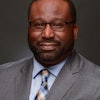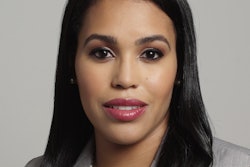Digital Divide Panel Urges Focus on Technology’s Impact
ONTARIO, Calif.
The effort to solve digital divide issues is forcing the higher education establishment and local communities to re-examine the culture of their schools and quality education as a priority, expert panelists concluded at the TechEd01 conference here.
“We’re moving away from worrying about building the infrastructure. (The question now) is, what do you do with the infrastructure?” asked Ramon Harris of the Executive Leadership Foundation during a wide-ranging session on the digital divide.
For the second consecutive year, Cox, Matthews and Associates, the publisher of Black Issues in Higher Education and Community College Week, sponsored a panel discussion on digital divide issues at the annual TechEd meeting organized by the Community College Foundation.
An estimated 4,000 people attended the meeting, which is billed as the “hands on” conference for academic administrators and faculty at high schools, community colleges and four-year colleges and universities. The “hands on” title refers to the broad range of seminars where conference participants test software and other information technology products.
Participating in the digital divide panel were B. Keith Fulton, vice president of the AOL Time Warner Foundation and senior director for social innovations at AOL Time Warner Inc.; Dr. Roscoe Giles, executive director of the Institute for African American eCulture and a professor in the electrical and computer engineering department at Boston University; Randal Pinkett, technologist and doctoral candidate at Massachusetts Institute of Technology; Dr. Dolores Cross, president of Morris Brown College; Dr. Linda Mercouri, professor of computer information technologies at Springfield Technical Community College in Springfield, Mass.; and Harris, executive director of the Executive Leadership Foundation’s Technology Transfer Project in Washington. Frank Matthews, publisher at Cox, Matthews and Associates, moderated the discussion.
Despite the varied specialties of the panelists, there was consensus that the digital divide has too often been cast as an access issue. The panelists, urging a broad understanding of the issue, defined the digital divide in terms of how information technology can help the disadvantaged and students improve their socio-economic status by enabling them to conduct business electronically after they have attained access to computers and the Internet.
The broad definitions of the digital divide unveiled by the panelists contrasted sharply with the ideas expressed by Dr. Stanley Davis, a TechEd conference keynote speaker who also addressed the digital divide session. Davis, a technologist, said the lack of information technology in disadvantaged communities should be easily solved given the rapid pace of technological development. However, he characterized the six-member panel of five African Americans and one Latino as failing to represent the fact that Hispanics have the lowest levels of computer ownership and Internet access among American ethnic and racial groups .
While acknowledging the importance of technology access as a basic issue, the panelists expanded the discussion and talked about the challenges of making information technology a tool that helps to better minority communities and students’ lives.
MIT’s Pinkett described how a computer network and database he established in a predominantly Black housing project in the Roxbury community of Boston is helping residents there to start businesses, find jobs and barter services. The project, based in Canfield Estates, is the basis of a doctoral dissertation he is completing at MIT’s interdisciplinary media laboratory department.
“If you focus on access alone, you don’t get to outcomes. (My project) looks at outcomes, such as employment, savings and education,” Pinkett told the audience.
Cross, of Morris Brown College, stressed the need for instilling a social vision among the constituent community to whom information technology is being introduced. Cross recalled that following an announcement that students would be required to purchase laptops for their education at the private Black college in Atlanta, students nearly rioted over the mandate. Not until after students were assured the laptops would enhance their educational experience did they feel comfortable with the mandate, according to Cross.
“Initially, the students perceived the mandate as a burden. We had to convince them that they were making a wise investment in their education,” Cross says.
Mercouri spoke ardently about how she reinforces the Web programming languages she teaches to mostly poor Latino students by having them build Web sites for community organizations. She says her students embrace technology more readily when it can be seen as an empowerment tool.
“I get my students active in the transference of knowledge,” Mercouri says.
© Copyright 2005 by DiverseEducation.com



















